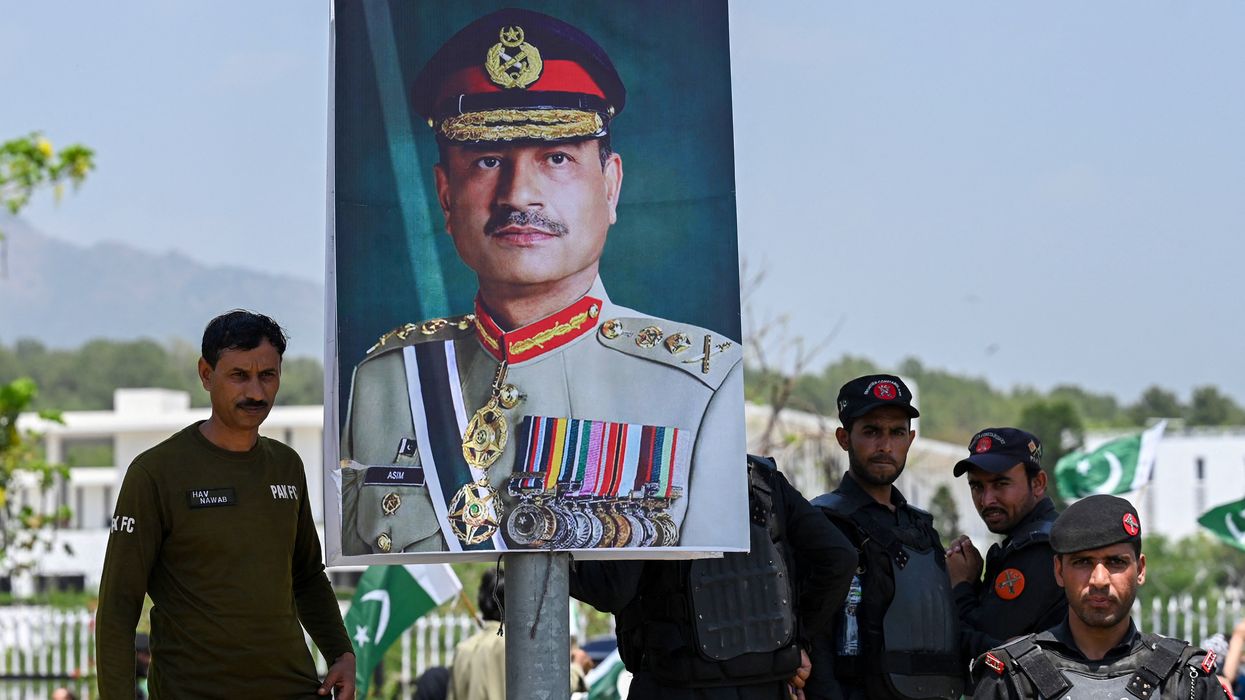US PRESIDENT Donald Trump will host Pakistan army chief Asim Munir for lunch at the White House on Wednesday.
“The president has lunch with the chief of army staff of the Islamic Republic of Pakistan,” an advisory issued by the White House said.
The lunch is scheduled for 1 pm (local time) in the Cabinet Room of the White House.
Trump had returned to Washington on Tuesday morning, cutting short his visit to Kananaskis, Canada, where the G7 leaders' summit is being held, due to growing tensions in the Middle East following the latest Israel-Iran conflict.
Officials in Islamabad are projecting the White House invitation to Munir as a major diplomatic success, according to Dawn.
Munir's remarks on India, Pahalgam attack
Field Marshal Munir, who was promoted to Pakistan's rare five-star rank last month — the first such promotion since Ayub Khan in 1959 — urged India to engage with Pakistan “as a civilised nation” instead of “attempting to impose regional hegemony”, Dawn reported.
Addressing members of the Pakistani American community on Monday evening, Munir rejected claims that Pakistan was behind the terrorist attack in Pahalgam.
He accused India of trying to establish a dangerous “new normal” of "violating international borders", which he said Pakistan had “forcefully rejected”, according to the newspaper.
Tensions between India and Pakistan escalated after the Pahalgam attack, following which India carried out precision strikes on terror infrastructure in Pakistan and Pakistan-occupied Kashmir on May 7.
The four-day-long military actions from both sides ended after talks between the directors general of military operations of India and Pakistan on May 10, during which both agreed to halt further escalation.
Engagement with Pakistani American community
Munir’s interaction with the Pakistani American community was held at the Four Seasons Hotel in Washington’s Georgetown area. The event reportedly drew a large gathering.
Protesters affiliated with the opposition Pakistan Tehreek-e-Insaf (PTI) party, led by former prime minister Imran Khan, demonstrated outside the venue, demanding democratic reforms and the release of jailed PTI leaders.
Remarks on Israel-Iran war and US counterterrorism partnership
Speaking on the broader regional situation, Munir expressed Pakistan’s “clear and strong” support for Iran in its conflict with Israel, while also backing US efforts to de-escalate the crisis.
“We want this war to end immediately,” he said.
A key development during Munir's visit has been the strengthening of Pakistan's counterterrorism partnership with the US, particularly in operations targeting the Islamic State Khorasan (IS-K) group, Dawn reported.
Praise from US Central Command
Gen Michael Kurilla, chief of US Central Command, recently called Pakistan a “phenomenal partner” in the fight against IS-K, highlighting operations along the Pakistan-Afghanistan border.
Kurilla told the House Armed Services Committee that Pakistani operations, aided by US intelligence, had resulted in the deaths of dozens of IS-K militants and the capture of several high-value individuals, including Mohammad Sharifullah, who was one of the masterminds of the Abbey Gate bombing in Kabul that killed 13 American soldiers.
“The first person Munir called was me,” Gen Kurilla said. “He said, ‘I've caught him — ready to extradite him back to the US. Please tell the secretary of defence and the president’.” Sharifullah was quickly extradited.
In a separate statement to the Senate Armed Services Committee, Kurilla said Pakistan had carried out “dozens of operations” against IS-K and continued to play an important role in combating terrorism in Central and South Asia.
(With inputs from agencies)





